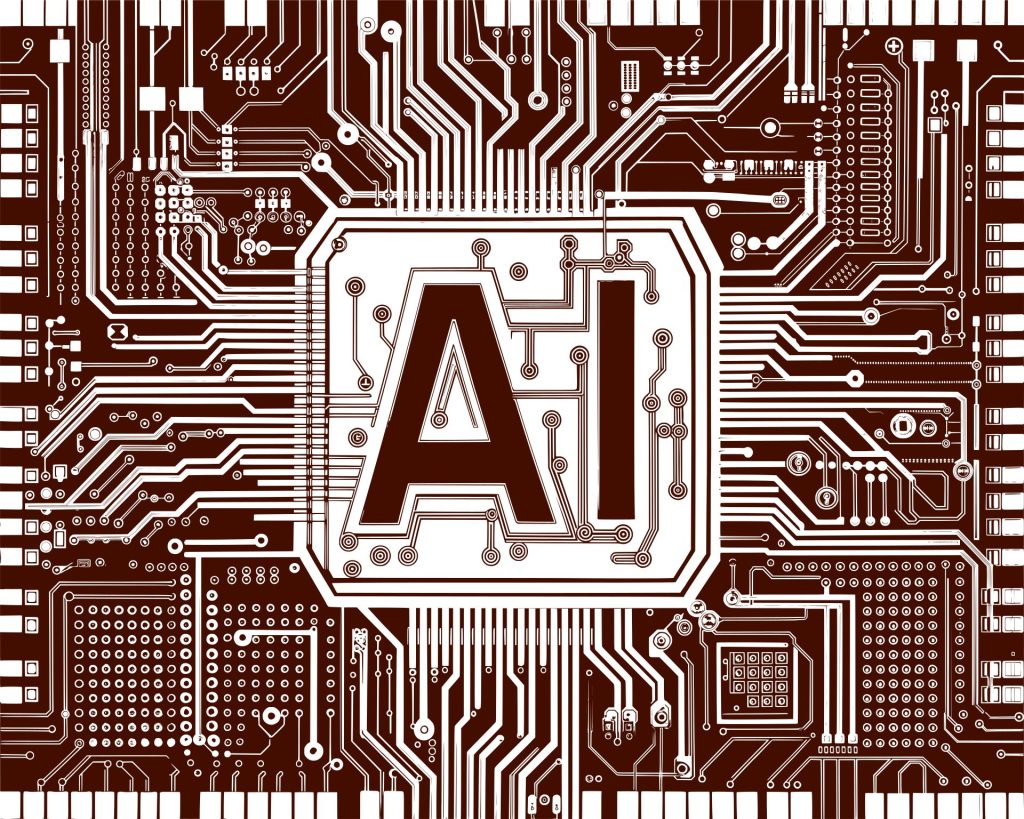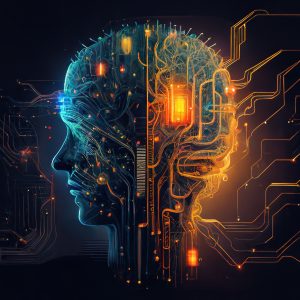BY DENNIS NJAGI
Introduction
Artificial Intelligence (AI) has transitioned from a futuristic concept to a present-day reality that is rapidly transforming industries across the globe. In the legal arena, AI is not only changing how legal research, contract review, and case management are performed, but it is also prompting deeper questions about the nature of justice, accountability, and ethics. In Kenya, as in many other jurisdictions, the adoption of AI in legal practice offers the promise of increased efficiency and innovation. However, it also presents significant challenges that need to be addressed through thoughtful regulation and continuous adaptation of legal frameworks.
At Chege Kibathi and Company Advocates, we believe that understanding the opportunities and challenges posed by AI is crucial for both legal practitioners and the public. This essay examines how AI is transforming legal practice, the risks it brings, the evolving role of the judiciary in an AI-enabled world, and how Kenya’s legal framework is beginning to respond. Through the analysis of relevant case laws and practical examples, we aim to provide an insightful perspective on how technology and law can coexist for the benefit of society.
The Rise of AI in the Legal World
The Emergence of AI in Legal Practice
In recent years, the legal sector has witnessed an influx of AI-driven tools that streamline processes once considered labor-intensive and time-consuming. These tools range from software that automates legal research to systems that analyze court decisions to predict litigation outcomes. AI’s capability to process vast amounts of data in a short time is revolutionizing the traditional legal workflow.
For example, platforms like LexisNexis and Westlaw, integrated with AI algorithms, have significantly reduced the time required for legal research. Lawyers can now access case laws, statutes, and regulations with just a few clicks, allowing them to focus on higher-order analytical tasks rather than sifting through volumes of text. Similarly, AI-powered contract analysis tools are helping legal professionals identify potential risks and inconsistencies within contracts, thereby enhancing the precision of legal documentation.
Global and Local Trends
Globally, jurisdictions such as the United States, the United Kingdom, and several European countries have made significant inroads in integrating AI into legal services. In these regions, AI tools are not only used for research and document review but are also being experimented with in areas like predictive analytics and even in the resolution of disputes. In the United States, for example, research has shown that some AI systems are able to predict Supreme Court decisions with an accuracy rate of up to 80%.
In Kenya, while AI adoption is still in its early stages compared to these jurisdictions, there is growing interest among legal practitioners, academics, and policymakers. With increasing digitalization in the public and private sectors, Kenya is poised to leverage AI to improve access to justice, reduce case backlogs, and enhance overall legal service delivery. However, as AI becomes more prevalent, it raises critical questions about its impact on legal ethics, accountability, and the role of human judgment.
How AI is Transforming Legal Practice
Enhancing Legal Research and Analysis
One of the most significant impacts of AI in law is in the realm of legal research. AI tools can quickly analyze thousands of cases and legal documents, extracting relevant information and summarizing complex legal arguments. This not only saves time but also increases the accuracy of legal research.
Contract Automation and Document Review
Contract automation is another area where AI is making a tangible difference. AI-driven software can draft and review contracts, flagging unusual clauses, potential risks, and areas of non-compliance with regulatory standards. This application is particularly beneficial in commercial law, where contracts can be extensive and complex. A notable example is the use of AI tools to compare standard contract templates with customized versions, ensuring that any deviations do not compromise the client’s interests.
Predictive Analytics in Litigation
Litigation is inherently unpredictable, but AI is changing that narrative. Predictive analytics tools can analyze historical data and case outcomes to forecast the likely result of a lawsuit. This technology provides legal practitioners with a statistical edge, allowing them to advise clients more accurately regarding the strengths and weaknesses of their cases. For instance, in civil litigation, having access to predictive analytics can assist in settlement negotiations, as parties are better informed about the probable verdicts.
Discovery and Document Management
E-discovery, the process of identifying and producing electronically stored information (ESI) for litigation, is another area transformed by AI. Traditionally, e-discovery is a time-consuming and costly process. However, AI algorithms can swiftly scan through large datasets, identify key documents, and even determine their relevance to the case. This not only expedites the discovery process but also reduces costs for clients.
AI-Powered Chatbots and Virtual Assistance
In addition to backend functions, AI is increasingly being deployed on the front lines of legal service delivery. AI-powered chatbots and virtual assistants are now available to provide preliminary legal advice, answer frequently asked questions, and even schedule appointments. This innovation makes legal assistance more accessible to laypeople, particularly in rural areas where legal resources might be scarce.
AI and the Judiciary: Can Machines Deliver Justice?
The Role of AI in Courtroom Settings
Some jurisdictions are experimenting with AI applications in courtroom settings. For example, there are ongoing pilot programs where AI assists in case management and even suggests sentencing recommendations. While these systems aim to streamline judicial processes, they also raise critical concerns regarding the balance between efficiency and fairness.
The Question of Impartiality
A major concern with AI in judicial decision-making is whether machines can remain truly impartial. AI systems rely on data, and if that data is biased or incomplete, the system’s output may also be biased. For instance, if historical case data reflect racial or socioeconomic prejudices, an AI tool might inadvertently perpetuate these biases. This concern was highlighted in a recent debate within the legal community about the potential for “algorithmic bias” in judicial decisions. Accountability for AI Decisions
Another complex issue is accountability. If an AI system provides a recommendation that ultimately influences a judicial decision, who is held responsible for any errors? Is it the software developer, the presiding judge who relied on the technology, or the institution that deployed it? These questions remain largely unsettled, and legal scholars continue to debate how best to assign liability in cases involving AI.
Case Example: AI in Sentencing Recommendations
Although Kenya has not yet integrated AI into its judicial decision-making, international case studies provide instructive examples. In the United States, some jurisdictions have experimented with AI sentencing tools like COMPAS (Correctional Offender Management Profiling for Alternative Sanctions). Studies on COMPAS have shown mixed results—while the system can enhance efficiency, critics argue that it sometimes perpetuates racial biases. Such examples underscore the need for careful oversight and regulation before any widespread adoption in Kenya.
The Legal Risks and Challenges of AI
Privacy and Data Protection
AI systems operate by processing massive amounts of data, much of which is personal and sensitive. In Kenya, the Data Protection Act, 2019 provides a framework for safeguarding personal data. However, AI’s extensive data requirements raise new challenges. For instance, if an AI system used in legal research inadvertently exposes personal information during data analysis, it could lead to significant privacy violations.
A practical example is seen in the use of AI for e-discovery. While these tools are efficient, they must be carefully managed to ensure that confidential client information is not disclosed inadvertently. The balance between technological efficiency and data protection is a critical area that requires ongoing attention from legal professionals and regulators alike.
Algorithmic Bias and Fairness
The fairness of AI systems is a central concern. AI algorithms are only as good as the data they are trained on, and if that data is skewed or biased, the outcomes can be unfair. For instance, if an AI tool used for litigation prediction is trained on historical data that reflect systemic biases, its predictions may disproportionately disadvantage certain groups.
Legal cases in other jurisdictions have highlighted this issue. In the United Kingdom, for instance, concerns were raised over algorithms used in the criminal justice system that appeared to predict higher rates of re-offending for minority groups. While Kenya has yet to face such controversies directly, it is imperative that any AI adoption in the legal system be accompanied by robust mechanisms to monitor and correct for bias.
Liability and Accountability
Determining liability in the context of AI is another formidable challenge. If an AI system provides flawed legal advice that leads to a poor outcome for a client, pinpointing accountability becomes complicated. The legal framework must evolve to clarify whether the responsibility lies with the legal practitioner, the AI developer, or even the client who chose to rely on the AI system.
One emerging area of legal debate revolves around professional negligence. Traditional legal standards hold lawyers accountable for their advice, but as AI becomes a tool used by legal professionals, there will be questions about how much reliance on AI is reasonable. The answer to this may eventually be guided by new case law as disputes over AI-driven advice begin to surface in Kenyan courts.
Ethical Considerations and Job Displacement
Beyond legal and technical risks, AI also poses ethical challenges. Many legal professionals fear that AI may lead to job displacement, particularly for junior lawyers and paralegals whose roles are primarily administrative. However, it is also possible that AI will create new opportunities by freeing up lawyers to focus on more complex tasks that require human judgment and empathy.
Ethically, the integration of AI into legal practice requires a careful balancing act. It is essential to ensure that while efficiency is improved, the human element of legal advocacy—empathy, ethics, and nuanced understanding—remains intact. Professional bodies and regulatory agencies in Kenya will need to work together to develop guidelines that ensure AI is used as a tool to augment human expertise rather than replace it.
Kenya’s Legal Framework on AI and Digital Law
Existing Laws and Their Relevance
Kenya does not yet have legislation that specifically addresses AI. However, several existing laws have provisions that are relevant to the regulation of AI:
- The Data Protection Act, 2019: This Act sets out the rights of individuals regarding their personal data and imposes obligations on those who process such data. AI systems, which rely heavily on large datasets, must comply with these data protection standards.
- The Computer Misuse and Cybercrimes Act, 2018: This Act addresses cyber-related offenses and establishes safeguards against the misuse of digital technologies. As AI systems are increasingly interconnected and dependent on data networks, this Act provides a baseline for cybersecurity measures.
- The Kenya Information and Communications Act: This Act governs digital communications and the operation of online services, providing a framework that can be adapted to oversee AI-driven legal services.
The Need for AI-Specific Legislation
Given the rapid development of AI technologies, many legal experts argue that Kenya needs AI-specific legislation. Such laws would address issues like algorithmic transparency, accountability in AI decision-making, and ethical guidelines for the use of AI in both public and private sectors. An AI law in Kenya could also provide clarity on liability issues and set standards for fairness and non-discrimination in AI applications.
International Perspectives and Inspirations
Kenya can also look to international models when considering AI regulation. For example, the European Union is actively working on an AI regulation framework aimed at ensuring that AI systems are transparent, safe, and respect fundamental rights. Adopting similar principles could help Kenya create a balanced approach that fosters innovation while protecting the rights of individuals.
Case Law and Practical Examples
Landmark Cases and Their Lessons
While Kenya is still in the early stages of integrating AI into legal practice, international case law offers valuable insights. One notable example is the debate around the COMPAS algorithm in the United States. COMPAS, used to assess recidivism risk, has been scrutinized for its potential biases. In cases such as State v. Loomis, courts have grappled with the question of whether it is fair to use algorithmic predictions in sentencing. Although not directly applicable in Kenya, such cases highlight the need for careful oversight when introducing AI into legal decision-making.
Another instructive case comes from the United Kingdom, where concerns were raised about algorithmic bias in the criminal justice system. In these cases, courts have emphasized the importance of transparency in how AI systems are trained and the need for regular audits to ensure that the data used does not perpetuate historical injustices.
Practical Example: AI in Legal Research
Consider a law firm that uses an AI-powered legal research tool. Previously, legal research involved manually sifting through volumes of case reports and legal journals—a process that could take weeks. With AI, a lawyer can enter a few search terms and obtain a list of relevant cases, complete with summaries and key legal points. This transformation not only improves efficiency but also enhances the lawyer’s ability to craft informed legal arguments.
For example, Chege Kibathi and Company Advocates have integrated AI tools to assist in identifying precedents for complex land disputes. By leveraging AI, our team was able to quickly pinpoint case laws that were pivotal in the outcome of a recent land claim dispute, ultimately saving time and reducing costs for our client.
Practical Example: Contract Automation
In another scenario, an AI contract analysis tool can review lengthy commercial contracts to highlight clauses that may be unfavorable to a client. By comparing the contract with a standard template, the tool can flag deviations that might increase risk. This proactive approach allows legal teams to renegotiate terms before a contract is finalized, thus preventing future disputes. Such automation is already being adopted in many jurisdictions and represents a significant leap forward in legal practice.
The Future of AI in Kenya’s Legal Landscape
Opportunities for Innovation
The future of AI in Kenya’s legal sector is full of promise. AI can enhance legal service delivery in several ways:
- Enhanced Legal Aid: AI-powered platforms could democratize access to legal advice, particularly for underserved communities. For example, virtual legal clinics could use AI chatbots to provide initial consultations and direct individuals to appropriate legal resources.
- Improved Efficiency: By automating routine tasks, AI frees up legal professionals to focus on complex cases that require human expertise. This could lead to faster resolution of disputes and lower costs for clients.
- Data-Driven Decision Making: As more data becomes available, AI tools will continue to refine their predictive capabilities, helping lawyers to develop more effective strategies and enabling better outcomes for clients.
Challenges in Adoption
Despite the many opportunities, several challenges remain:
- Technological Infrastructure: The successful adoption of AI requires robust technological infrastructure, including reliable internet connectivity and data security systems. In some regions of Kenya, these prerequisites are still being developed.
- Regulatory Uncertainty: Without specific AI legislation, legal practitioners must navigate a patchwork of existing laws that may not adequately address AI’s unique challenges. This regulatory uncertainty can slow down adoption.
- Skill Development: Lawyers and legal professionals must develop new skills to work effectively with AI. This involves not only technical training but also a deep understanding of AI ethics and data analytics.
- Public Trust: For AI to be successfully integrated into legal services, both legal professionals and the public must trust the technology. This requires transparency, accountability, and ongoing monitoring to ensure that AI systems operate fairly.
The Role of Legal Practitioners
Legal practitioners have a pivotal role to play in the integration of AI into the legal system. They must advocate for responsible AI use while also adapting to new technologies. By staying informed about AI developments and engaging in discussions about ethics and regulation, lawyers can help shape a legal landscape that embraces innovation without compromising justice.
Conclusion
Artificial Intelligence is rapidly reshaping the legal landscape—not only by enhancing efficiency and accuracy in legal practice but also by raising critical questions about fairness, accountability, and ethics. In Kenya, the integration of AI presents both immense opportunities and significant challenges. As the legal sector evolves, it is crucial that policymakers, legal practitioners, and technologists work together to create a regulatory framework that supports innovation while protecting individual rights.
As we recognize that technology is a powerful tool that must be harnessed responsibly. We are committed to staying at the forefront of legal innovation, ensuring that our clients benefit from the efficiencies of AI while upholding the core values of justice and human judgment. As Kenya continues to advance in digital transformation, our role will be to guide and protect the interests of our clients in an ever-changing legal environment.
The journey ahead is both exciting and challenging. By embracing AI while remaining vigilant about its risks, we can create a legal system that is more accessible, efficient, and just for all.










